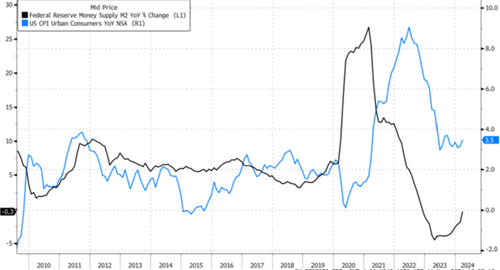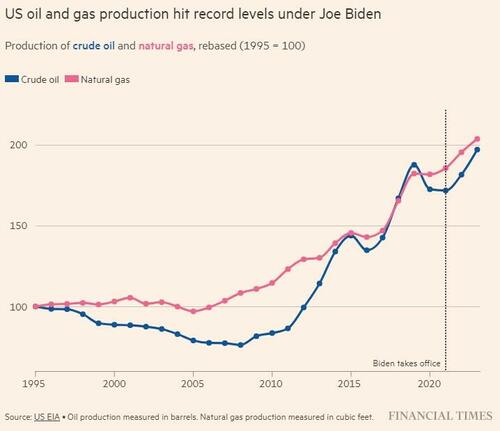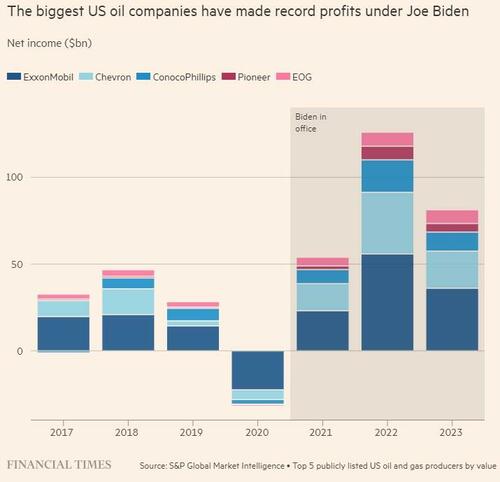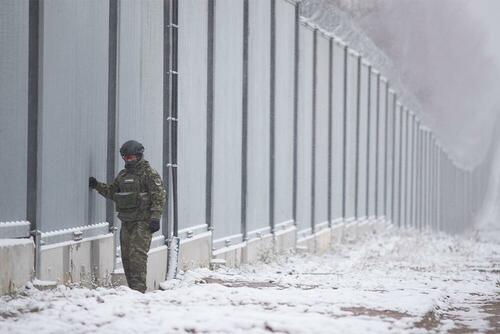Putin Unveils Dramatic Reshuffling Of Closest Advisors: Shoigu Out As Defense Minister
Russian state media is confirming a huge breaking development that President Putin has removed his longtime Defense Minister and personal friend Sergei Shoigu as defense chief, who has overseen the Ukraine war since its beginning in Feb. 2022. He will now serve as head of the nation's security council.
"Sergei Shoigu is likely to lose the post of Minister of Defense of Russia to acting First Deputy Prime Minister Andrei Belousov," English-language RT is reporting. "His candidacy was proposed by President Vladimir Putin, the Federation Council announced on Sunday."
Putin has also reportedly dismissed Secretary of the Security Council Nikolai Patrushev, according to Interfax.
This appears in order to shuffle Shoigu into that position. Putin has now appointed Shoigu as new Secretary of the Russian Security Council. Likely Patrushev is also being moved to another position too.
Wow, indeed. Looks like Putin is pushing out his long-time Defense Minister and Siberian forest hiking partner Sergei Shoigu. https://t.co/XUYoKmR1UO
— Christopher Miller (@ChristopherJM) May 12, 2024
The proposed candidate for new defense chief, Belousov, has a background in Russia's central bank and economics and finance...
Russian President Vladimir Putin has proposed former First Deputy Prime Minister Andrey Belousov as candidate for Defense Minister, Tass reports https://t.co/jLuFF5g6b8
— Bloomberg (@business) May 12, 2024
Below is some background on Belousov and his last two decades of government experience, though specific military decision-making or army experience on a strategic level appears to be absent, interestingly:
2000‒2006: General Director, Centre for Macroeconomic Analysis and Short-Term Forecasting.
2000‒2006: External adviser to the Prime Minister of the Russian Federation.
2006‒2008: Deputy Minister of Economic Development and Trade, Deputy Minister of Economic Development.
2008‒2012: Director, Government Department of Economy and Finance.
2012‒2013: Minister of Economic Development of the Russian Federation.
2013‒2020: Presidential Aide.
21 January 2020: First Deputy Prime Minister of the Russian Federation, appointed by executive order of the President of Russia.
Putin spokesman Dmitry Peskov addressed this lack of military experience as follows in a late Sunday press briefing:
Explaining Shoigu's replacement with a non-military official, Kremlin spokesman Dmitry Peskov said it was "natural" for Putin to decide that a civilian official to head the Defense Ministry.
"The Defense Ministry must be absolutely open to innovation, to introduce advanced ideas and to create conditions for economic competitiveness — that’s why the president chose the candidacy of Andrei Removich Belousov," Peskov told reporters.
According to more details of Putin's big reshuffling via RT:
Senators are scheduled to engage in consultations regarding the nominees put forth by the president during committee sessions on May 13 and during a Federation Council meeting on May 14, as announced by the upper house of the Russian parliament.
No further alterations have been made to the roster of candidates Putin has submitted for cabinet positions. His nominations include Vladimir Kolokoltsev for the position of interior minister, Alexander Kurenkov for minister of emergency situations, Sergey Lavrov for foreign minister, and Konstantin Chuichenko for justice minister.
Denis Manturov, who served as deputy prime minister and head of the Ministry of Industry and Trade during Putin’s last term in office, has been nominated for the position of first deputy prime minister.
Dmitry Peskov, Putin's spokesman, says the Kremlin wanted to appoint an economic official to run the defense ministry after Russia’s security budget ballooned to 6.6 per cent of gross domestic product.
— max seddon (@maxseddon) May 12, 2024
“This demands special attention,” he told reporters.
And TASS has this further confirmation and backgrounder on Belousov (machine translation)...
"Russian President Vladimir Putin proposed the candidacy of Andrei Belousov for the post of Minister of Defense, which was previously held by Sergei Shoigu. This is stated in a message on the Telegram channel of the Federation Council. In the previous government, Belousov worked as first deputy prime minister."
"65-year-old Belousov at various times held the positions of assistant to the head of state Vladimir Putin on economic issues, Minister of Economic Development of the Russian Federation, director of the Department of Economics and Finance of the Government of the Russian Federation, general director of the Center for Macroeconomic Analysis and Short-Term Forecasting, and worked at the Russian Academy in 1981-2006 Sciences (until 1991 - USSR Academy of Sciences). From April 30 to May 19, 2020, during Mishustin’s hospitalization with coronavirus infection, Belousov served as acting head of the Cabinet."
Tyler Durden Sun, 05/12/2024 - 14:44
















 Via AP
Via AP
Recent comments